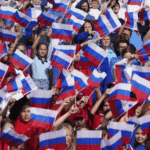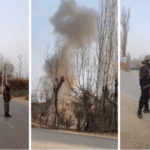No Water Supply on September 18, 2024, the residents of South Delhi will experience a significant disruption in their daily routine due to a scheduled water supply stoppage announced by the Delhi Jal Board (DJB). The disruption is expected to last for 12 hours, starting from 9 a.m. and lasting until 9 p.m., as the DJB undertakes crucial maintenance work on the water distribution system. This temporary shutdown will impact several localities in South Delhi, and residents are urged to make necessary arrangements in advance to mitigate the inconvenience.
Reason for the Water Supply Disruption
The Delhi Jal Board ,No Water Supply which is responsible for the water supply and sewage management in the National Capital Territory of Delhi, has issued a public notice explaining the reason for the 12-hour water supply stoppage. According to the DJB, the interruption is due to essential maintenance and repair work on the water supply infrastructure, including the cleaning and desilting of major pipelines, valve replacement, and the repair of leakages. These tasks are part of the DJB’s regular efforts to ensure an uninterrupted and efficient water supply system for the city.
The work will focus on key areas of South Delhi No Water Supply, where aging pipelines and outdated infrastructure have been causing recurring water supply issues in recent months. The DJB has emphasized that the maintenance is crucial to prevent further disruptions and to improve the overall water distribution network. 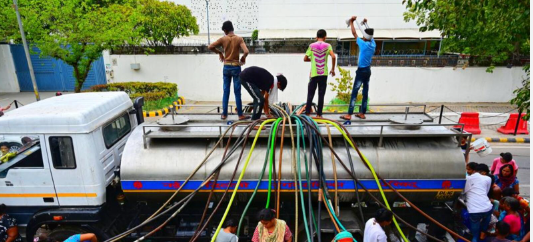 For the more information click on this link
For the more information click on this link
Localities Affected by the Water Cut
Several prominent areas of South Delhi will be affected by the water supply shutdown on September 18. The DJB has provided a list of affected localities, No Water Supply urging residents to be prepared for the temporary suspension of water services. The affected areas include:
- Vasant Vihar
- Hauz Khas
- Greater Kailash (GK) – I and II
- Malviya Nagar
- Lajpat Nagar
- Green Park
- Saket
- Defence Colony
- New Friends Colony
- Jangpura
- Siri Fort
- South Extension – I and II
- Chirag Delhi
- Kalkaji
The areas mentioned above are some of the most densely populated and commercially active neighborhoods in the city, making the water supply cut a matter of concern for both residents and businesses alike. The DJB has urged residents to store sufficient water ahead of time and to use water judiciously during the period of disruption.
Impact on Daily Life and Businesses
The 12-hour water supply cut is expected to significantly impact daily life in the affected areas. Households, commercial establishments, schools, and hospitals will need to prepare for the disruption by storing water in advance and conserving their usage throughout the day.
For households, No Water Supply the lack of water will affect basic tasks such as cooking, cleaning, and personal hygiene. Many residents have expressed concerns about how the water cut will affect their morning routines, especially for working professionals and school-going children. Families will need to make alternate arrangements, such as using stored water or relying on bottled water during the outage.
Local businesses, particularly restaurants, cafes, and hotels, are also likely to feel the impact of the water cut. Many eateries and food delivery services in the affected areas rely heavily on a continuous water supply for their operations. The temporary disruption may force some businesses to reduce their operating hours or limit services for the day. Additionally, beauty salons, laundromats, and gyms, which also rely on water for their services,No Water Supply will face challenges in maintaining normal operations during the shutdown.
Schools and educational institutions will need to ensure that students and staff have access to adequate drinking water and sanitation facilities throughout the day. Some schools may choose to adjust their schedules or make temporary arrangements to manage the situation.
Hospitals and healthcare facilities in the affected areas will be particularly impacted by the water cut. Water is critical for maintaining hygiene standards, cleaning, and patient care in hospitals. The DJB has assured hospitals and other essential services that they will receive priority water supply through tankers during the maintenance period. However, No Water Supply healthcare facilities are expected to be under added pressure to manage their operations smoothly during the outage.
Precautionary Measures and DJB’s Advisories
In light of the water supply shutdown, the DJB has issued several precautionary measures and advisories to help residents cope with the disruption. These include:
- Storage of Water: Residents in the affected areas are strongly advised to store enough water in advance to meet their daily needs during the 12-hour shutdown. The DJB recommends storing at least 20 liters of water per person for drinking, cooking, and basic hygiene purposes.
- Use Water Judiciously: The DJB has called on residents to use water judiciously during the maintenance period to ensure that their stored supply lasts throughout the day. Residents should prioritize essential tasks such as cooking and drinking and avoid wastage.
- Avoid Unnecessary Usage: Non-essential tasks such as car washing, gardening, and cleaning of driveways should be postponed until after the water supply is restored.
- Water Tankers: The DJB has made arrangements to deploy water tankers in the affected areas to provide emergency water supply to residents and businesses. These tankers will be available at designated locations, and residents can request water through the DJB’s helpline.
- Hospitals and Essential Services: The DJB has assured that hospitals, healthcare facilities, and other essential services will receive priority access to water through tankers to ensure that they can continue to operate smoothly during the shutdown.
- Stay Informed: The DJB has urged residents to stay informed about the water supply situation through its official website and social media channels. Updates on the progress of the maintenance work and the expected restoration time will be communicated regularly.
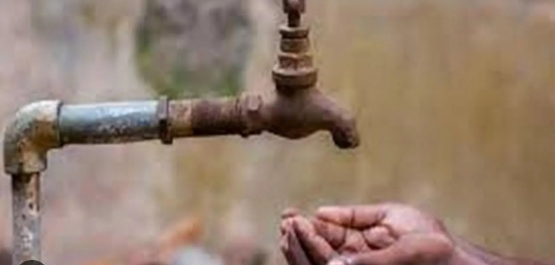 For the more information click on this link
For the more information click on this link
Public Reaction and Concerns
The announcement of the 12-hour water supply stoppage has elicited mixed reactions from the residents of South Delhi. While many acknowledge the need for maintenance work to improve the water supply infrastructure, there are concerns about the timing and duration of the shutdown.
Some residents have expressed frustration, noting that the water supply in their areas has been erratic in recent months due to frequent maintenance work and pipeline issues. They fear that the disruption on September 18 could be prolonged beyond the scheduled 12 hours, as has been the case in previous instances of maintenance work.
Others have raised concerns about the adequacy of water tankers, questioning whether the DJB’s tanker fleet will be able to meet the demand in densely populated areas. In the past, residents in some areas have reported long wait times for water tankers, leading to increased frustration and inconvenience.
Environmental groups and activists, on the other hand, have called on residents to view the water cut as an opportunity to reflect on the importance of water conservation. They have urged the public to adopt water-saving practices not only during the maintenance period but also as a long-term habit. 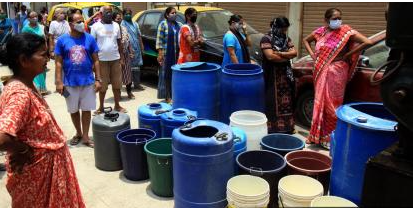 For the more information click on this link
For the more information click on this link
Delhi Jal Board’s Efforts to Improve Water Supply
The Delhi Jal Board has been grappling with several challenges related to water supply in recent years, including aging infrastructure, population growth, and increasing demand for water. The maintenance work scheduled for September 18 is part of a broader initiative by the DJB to address these challenges and improve the overall efficiency of Delhi’s water distribution system.
In recent months, the DJB has undertaken several infrastructure projects aimed at upgrading pipelines, reducing water losses, and ensuring a more reliable water supply to residents. These projects include the replacement of old and damaged pipelines ,No Water Supply the installation of new valves and meters, and the desilting of reservoirs and treatment plants.
The DJB has also been working to expand its capacity for water treatment and distribution to meet the growing demand in the city. Several new water treatment plants are under construction, and existing plants are being upgraded to improve their efficiency and output.
Despite these efforts, the DJB faces ongoing challenges in managing Delhi’s water supply. The city’s rapid population growth, coupled with the increasing demand for water, has put immense pressure on the existing infrastructure. Additionally, issues such as illegal water connections, No Water Supply wastage, and water theft continue to pose significant hurdles to ensuring equitable water distribution.
Conclusion: A Call for Cooperation and Patience
The 12-hour water supply stoppage on September 18 is a necessary step to address the pressing infrastructure issues in South Delhi’s water distribution network. While the disruption will undoubtedly cause inconvenience to residents, the Delhi Jal Board’s efforts are aimed at ensuring a more reliable and efficient water supply in the long run.
Residents are encouraged to cooperate with the DJB’s advisories, store enough water in advance, and use water responsibly during the outage. The DJB, in turn, must ensure that the maintenance work is completed on time and that adequate arrangements, such as water tankers ,No Water Supply are in place to minimize the inconvenience to the public.
As Delhi continues to grow and evolve, the challenges of managing the city’s water supply will require coordinated efforts from both the government and the public. By working together and adopting water-saving practices, Delhi’s residents can contribute to a more sustainable and resilient water supply system for the future. ALSO READ:-Meeting Between Agitating Junior Doctors and West Bengal Government Begins at Mamata Banerjee’s Kalighat Residence 2024
